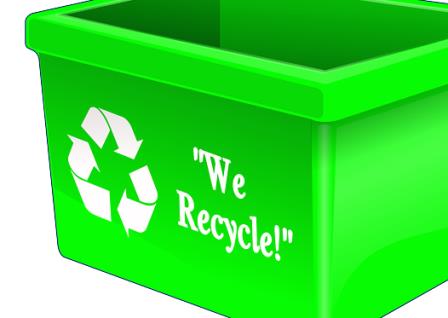Is Recycling Worth It?
We welcome varying opinions & views as long as they are constructive. We’re a company that buys cars for cash and transitions the vehicles for recycling. We are a junk car buyer willing to pay cash for junk cars, scrap vehicles and damaged cars. The question today is whether various forms of recycling are worthwhile? In the October 11, 2015 edition of straitstimes.com an article titled ‘How recycling is wasteful’ was composed by John Tierney with the following details: “In 1996, I wrote an article for The NYT Magazine arguing that the recycling process was wasteful. I presented plenty of evidence, but its defenders said it was unfair to rush to judgment. The modern recycling movement had just begun and they predicted it would flourish as the industry matured. So, what’s happened since then? The recycling message has reached more people than ever; the bottom line, economically & environmentally, not much has changed. It’s still typically more expensive for cities to recycle household waste than to send it to a landfill. Prices for recyclable materials have fallen because of lower oil prices & reduced demand overseas; it forced some recycling companies to shut plants.
While politicians set higher goals, the national rate of recycling has stagnated in recent years. As cities move into recycling glass, food scraps & plastics, the costs rise while the environmental benefits decline. Mr. Steiner, the CEO of Waste Management feels it costs more than expected. Recycling has been promoted as of public good; otherwise well-informed people have no idea of the cost, assuming that recycling plastic bottles must be doing lots for the planet.
NY and other cities instruct people to rinse bottles before putting them in the recycling bin, but the EPA’s calculation doesn’t take that into account–the omission can make a big difference. To many, recycling is a question of morality, not cost-benefit analysis. NY Mayor DeBlasio declared by 2030 the city would no longer send any garbage to landfills. San Francisco and Seattle are moving to a “zero waste” policy. The US recycling rate has been stuck around 34% in recenly. It makes sense to recycle cardboard paper, as well as metals & plastics; other materials rarely make sense, including food waste & compostable items. The goal is very expensive with no real environmental benefit. Original goals of recycling were to avert a crisis because there was no room left in the nation’s landfills. That fear was never realistic in a country with so much open space. The US Open tennis tournament is played on the site of an old landfill – one that never had the environmental safeguards required today.
Landfills have been welcomed in rural communities that reap economic benefits; the great landfill shortage has not arrived, and neither have the shortages of raw materials that were supposed to make recycling profitable. With the economic rationale gone, advocates for recycling have switched to environmental arguments. Most of these benefits do not come from reducing the need for landfills and incinerators. A modern landfill in a rural area can have relatively little environmental impact. Decomposing garbage releases methane, a greenhouse gas, but landfill operators have started capturing it and using it to generate electricity. Incinerators, while politically unpopular in the US, have been accepted in Europe and Japan for generating clean energy. Recycling operations have their own environmental costs, like extra trucks on the road & pollution from operations. Composting facilities around the country have inspired complaints about odors, rats and defecating seagulls. After NY started sending food waste to be composted in DE, the unhappy neighbors of the plant campaigned to shut it down last year.
The enviro benefits come from reducing the need to make new products — not appealing to workers in those industries. Everyone approves one potential benefit: reduced emissions of greenhouse gases (GG). Its advocates often cite an estimate by the EPA that recycling US municipal waste saves 186M tons of CO2. According to the EPA, 90% of GG’s come from paper, cardboard & metals like the aluminum. Recycling 1 ton of plastic saves only slightly more than 1 ton of carbon dioxide. A ton of food saves less than a ton; for glass, you recycle 3 tons to get 1 ton of greenhouse benefits. The worst is yard waste; as a business, recycling is on the wrong side of global economic trends. Labor cost has been increasing while the cost of raw materials declined. A labor-intensive activity, recycling is an expensive way to produce materials that are less valuable. Recyclers have tried to improve by automating. The more types of trash recycled, the more difficult to sort the valuable from the worthless. In NYC, the cost of recycling a ton of trash is more than the cost to bury it. New Yorkers are spending for the privilege of recycling. That money could buy more valuable benefits, including more reductions in GG’s.
Why do public officials keep vowing to do more? Special-interest, green groups and it’s also because recycling appeals to voters. Cities have been burying garbage for 1,000+ years — it’s still easy & cheap. The recycling movement’s survival depends on continual subsidies.” The complete article is available at this link.
From an economic standpoint it is still worthwhile for us to buy cars for cash. A junk car buyer is able to recycle the various components from the vehicle when paying cash for junk cars. The pricing has dropped considerably when buying cars for cash. Here at BJC we pay cash for junk cars 6 days a week. Our junk car buyer will provide you a quote over the phone and free damaged car removal (towing) is included. We offer junk vehicle removal services throughout Summit, Portage and Medina Counties.


 using WordPress and
using WordPress and
Comments are closed